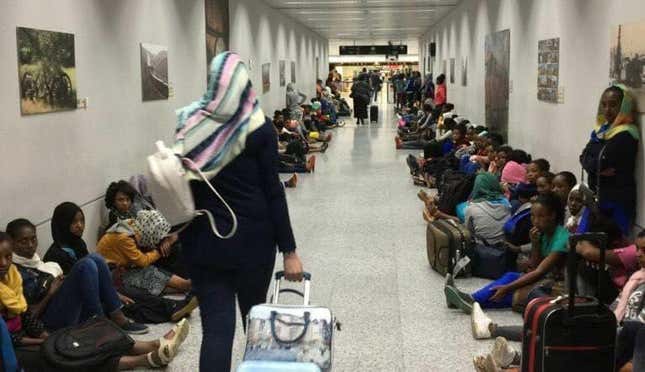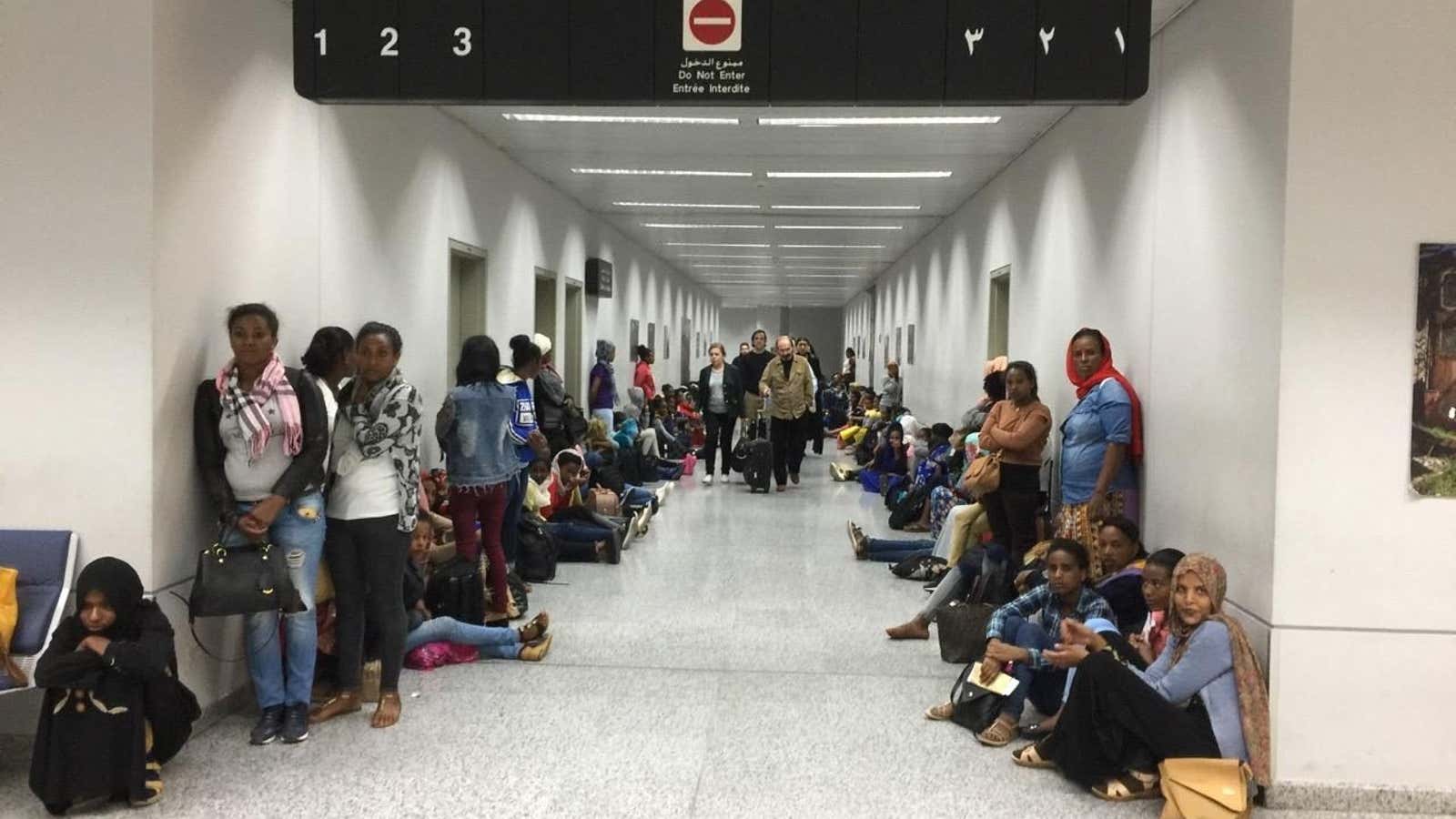Hundreds of Ethiopian female migrants who had been stranded for months in Lebanon, will remain stranded indefinitely as flights scheduled to evacuate them this week have been cancelled. They are just a small share of the thousands of Ethiopian workers stuck in the Middle Eastern country due to global travel restrictions prompted by the Covid-19 pandemic.
Some 530 migrants seeking repatriation had expected to board government chartered Ethiopian Airlines flights home. Evacuation flights had been cancelled due to Covid-19 fears and a dearth of mandatory quarantine space in Addis Ababa, according to an Ethiopian government official, who spoke on conditions of anonymity as they didn’t have authorization.
The would-be passengers had left Ethiopia to find work in Lebanon as live-in domestic workers. There are an estimated 150,000 Ethiopian women in Lebanon, most having flocked there in search of jobs that pay as little as $150 a month. The trend, which started in the 1990s, has enabled remittances as a vital source of income for impoverished families in Ethiopia.
But since late 2019, Lebanon’s economic woes has seen the Lebanese pound lose half of its original value, while the country eventually defaulted on its external debts. Domestic workers were laid off en masse, or had their salaries withheld.
Unemployed, out of money and with little prospects in a country now struggling to contain Covid-19 infections, Ethiopian women have sought to escape Lebanon for some eight months now. The first of them were scheduled to depart from Beirut’s Rafic Hariri International Airport yesterday. The second flight was to leave today.

“I’m frustrated,” says Samia, 28, who has been stuck, unemployed in the Middle Eastern country for weeks. “I was supposed to be back home today. Because of the lockdown in Lebanon there are no jobs, I can’t even afford bread.” Like other workers she declined to disclose her last name for fear of retaliation from Ethiopian authorities.
“It wasn’t our decision to cancel the flights,” Ethiopian Airlines’ Beirut office manager Daniel Tsige wrote in response to texted queries. “You’d have to contact the consulate to get an official response.”
From the migrants slated for departure this week, Ethiopia’s consulate had collected $550 registration fees for the repatriation flights. Ethiopian diplomats in Beirut are yet to clarify if the flights will even be rescheduled. Phone calls to Ethiopia’s Beirut based Consul Aklilu Tatere went unanswered.
“That money could cover our rent,” says Helen, 20, who also missed out on the flight. She shares a cramped room with six other Ethiopians in Beirut. “If they don’t send me home, they should refund me.”
Rampant abuse in Lebanese in households leads to an average of two maids dying weekly in Lebanon, according to Lebanese intelligence. Despite the dangers, poverty and skyrocketing living costs continue to drive tens of thousands of Ethiopian women like Samia and Helen to Lebanon in search of work, each year.
In 2008, the Ethiopian government banned its citizens from traveling for work purposes to Lebanon, in an attempt to curb ghastly numbers of deaths of its citizens there. But the ban has never been enforced. At around the same time of the ban, Ethiopian inflation rates soared to record highs, triggering an uptick in numbers of Ethiopians seeking work in the Middle East. Today, three quarters of all domestic workers in Lebanon are Ethiopians.
Sign up to the Quartz Africa Weekly Brief here for news and analysis on African business, tech and innovation in your inbox
